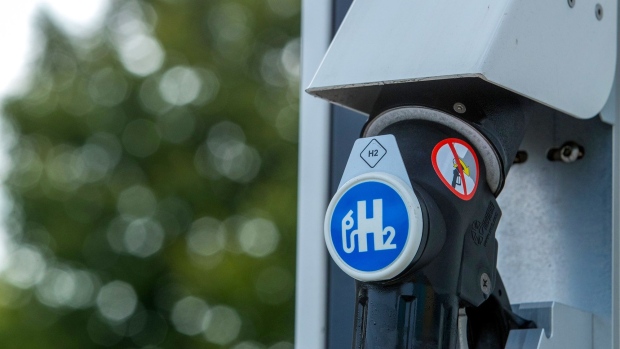Jan 31, 2023
EU States Deadlocked Over ‘Low Carbon’ Hydrogen in EU Transition
, Bloomberg News

(Bloomberg) -- The European Union’s push to scale up renewables in its bid to reach carbon neutrality by the middle of the century has become bogged down by a debate over hydrogen’s role in the transition.
France and eight other EU member states are calling for the European Commission to include hydrogen made by so-called “low carbon” technologies, like nuclear, in the bloc’s Renewable Energy Directive, according to a letter from economy and energy ministers to the bloc’s executive branch, seen by Bloomberg. The term is also seen as including hydrogen produced by gas with the emissions captured, in addition to renewable energy.
The EU sees hydrogen, which produces only water as a byproduct when burnt, as a major pillar of its efforts to slash emissions 55% by the end of the decade. But disagreement over which fuels are used to produce it — and how clean they are in turn — is threatening to undermine talks over boosting renewable energy in the bloc.
Germany is opposing the efforts to expand sources of hydrogen, meaning discussions are deadlocked between the two camps, according to people familiar with the matter. Publication of rules classifying renewable hydrogen could help the two sides to reach an agreement, according to senior official with knowledge of the matter.
Read more: EU to set high bar for what counts as green hydrogen.
“Renewable-only objectives would indeed limit the speed of the development of our hydrogen economy to the development pace of renewable energy sources, leaving untapped potential to produce low-carbon hydrogen,” said the letter addressed to energy commissioner Kadri Simson and internal market commissioner Thierry Breton. “Opposing low-carbon is a collective dead-end which endangers our goal to reach carbon neutrality by 2050.”
The EU is pushing to reach a deal on the directive before the summer. A key element will be whether the bloc boosts the headline target for clean technology’s share of energy consumption to 45% by the end of the decade, put forward by the commission in the wake of Russia’s invasion of Ukraine. Member states are currently advocating for a lower 40% goal.
The bloc aims to produce 10 million tons of green hydrogen by 2030, with the same amount imported from abroad. In addition to France, Romania, Bulgaria, Poland, Slovenia, Croatia, Slovakia, Hungary and the Czech Republic were set to be the other signatories of the letter.
©2023 Bloomberg L.P.






